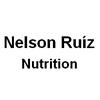Trypsin inhibitors and soybeans
Is Trypsin Inhibitor Exposure being Overlooked? Part I: Exposure from Cost Pressure

Dr. Patterson, you are certainly right in highlighting the relevance of trypsin inhibitors in soy products and its exposure related to ingredient cost pressures. However, it is not only when soybean meal (SBM) becomes more expensive in the international market that trypsin inhibitors play a role because poultry producers jump to the utilization of full-fat soybeans which not only may be less expensive on a per MT basis, but also because it provides higher energy density. In fact, the report in several parts of the world of the rapid feed passage syndrome in broilers (Kouwenhoven et al., 1992; Lopez et al., 1998; Miles and Butcher, 2002) and the subsequent report that trypsin inhibitors were one of the two main reasons for the problem to arise (Ruiz and Belalcázar, 2005), occurred as a consequence of the overwhelming abundance of SBM in the market worldwide. Therefore, levels of inclusion of SBM in poultry feeds, but particularly in broiler feeds, skyrocketed. SBM lots that were in the high side of residual trypsin inhibitors elicited the syndrome. The second main factor was the dramatic changes in the genetics of broilers first reported by Havenstein et al. (1994) which highlighted the enormous increase in feed intake of the broilers of 1991 vs. the broilers of 1957. So, the combination of broiler feeds with at least 25% SBM in the formula and the huge increase in feed intake led to a considerable increase in the net intake of trypsin inhibitors by broilers, particularly after 21 days of age, sufficient to elicit the inhibition of trypsin resulting in undigested feed (exogenous losses) and intestinal tissue (endogenous losses) in the excreta. Consequently, the old paradigm that urease activity between 0.05 and 0.20 pH units defined the adequacy of SBM quality became outdated (Ruiz, 2012 Arkansas Nutrition Conference). Trypsin inhibitors need to be measured and controlled in both SBM and full-fat soybeans (FFSB).
In the United States at least, FFSB is of no interest for the big broiler industry no matter what the price of SBM is. However, out of the U.S., in countries that are net importers of SBM broiler producers (as well as egg producers) may have an economic advantage by importing raw soybeans and processing them in their feed mills for auto consumption. The trypsin inhibitor issue there is that processors of FFSB think that the quality parameters for FFSB are the same as for SBM and center their attention in protein solubility and urease activity instead of trypsin inhibitors (Ruiz, 2019 Minnesota Nutrition Conference). There is plenty of data supporting that FFSB can perform as well as SBM in broiler, layer and turkey feeds as long as trypsin inhibitors are under control. FFSB is a different ingredient from SBM with distinct quality control parameters. Nelson Ruiz Nutrition, LLC Suwanee, GA USA
Dear Nelson Ruiz
Thank you very much for your clear explanation. Could protease enzyme be a good solution to mitigate ATF content in SBM and FFS? I have a problem converting ATF from IU to mg / g because the ratio is quite controversial in the literature. Thank you for helping.
Dr. EL IDRISSI IBRAHIM
Poultry nutritionist
ALF SAHEL Morocco

Hello Ibrahim, yes proteases may help to alleviate the effects of excess trypsin inhibitors in the diet. However, there are other ways to prevent the problem such as formulating for a maximum level of trypsin inhibitors in the formula provided you have alternative ingredients available in the market so that you can afford a reduction in the level of inclusion of soybean meal. If your company has the capability of producing full-fat soybeans (FFSB) by extrusion or cooking, then that is another opportunity to decrease TI in the feed because you can control the level of TI in FFSB. The new AOCS method (2020) to measure trypsin inhibitors has solved the issue of the units of expression. With the new method you can have results in both units, that is, in TUI/mg or mg/g. Look for AOCS in internet, look for purchasing methods, and ask for the Official Method Ba 12a-2020 Assaying Trypsin Inhibitor Activity.

Dr. Nelson, it is a pleasure to greet you,
Very interesting exposition, could you suggest to us how can we measure TI in Peru in a routine way? There are no laboratories that have the method implemented in a reliable way, there is only one laboratory and its results have demonstrated that they do not have reproducibility or accuracy.
Sending a sample abroad costs more than $200.
Can using the qualitative phenol red test be a reliable alternative?


FIGAP 2026: The Scientific And Technological Exhibition Of The Livestock Industry

Dr. Nelson Ruiz, nice talking to you.
Can you tell me what UTI/mg values we should obtain in FFSB under a wet extrusion process? Thank you very much.

.jpg&w=3840&q=75)

The impact of extruded soybean processing temperatures conditions on broiler’s ileal and cecal microbiota
























